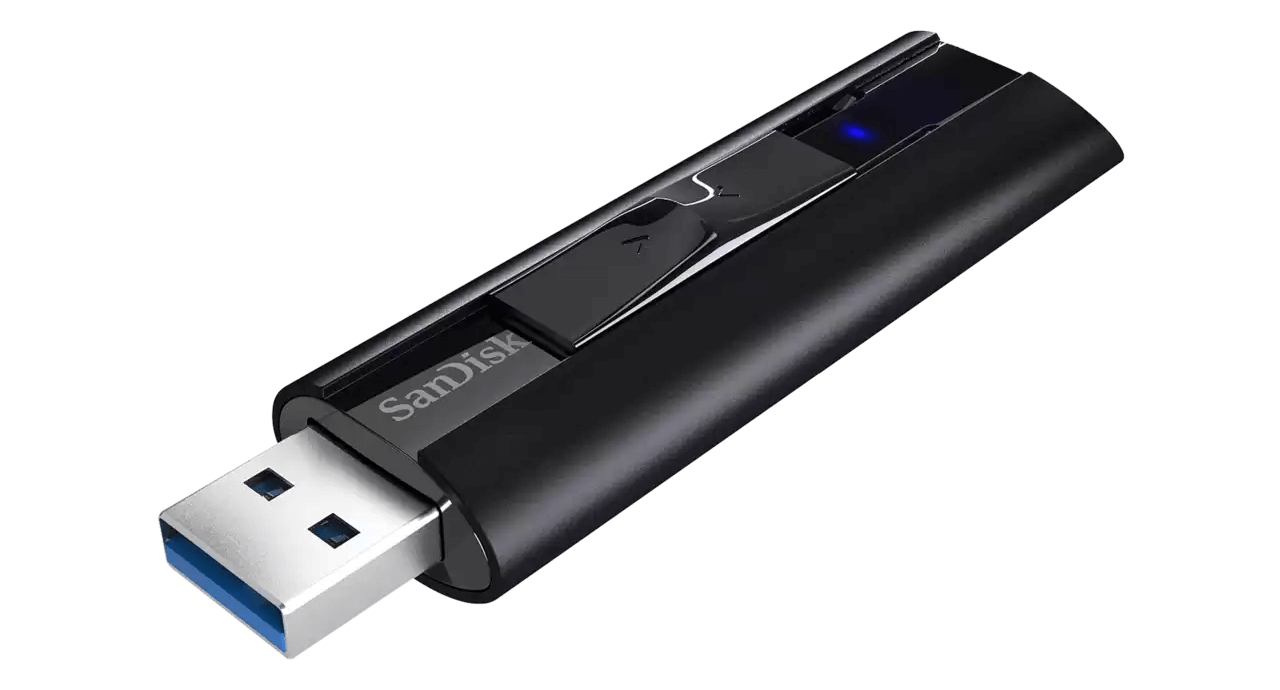Flash Drive
A flash drive is a small, removable data storage device that uses flash memory and connects directly to a computer's USB port. A flash drive is typically very compact, only as wide as the USB port itself and an inch or two long, but is also rugged enough to travel safely in a pocket or purse. Connecting a flash drive to a computer requires no additional hardware, which makes using a flash drive simple and convenient.
Early flash drives could only store a few megabytes of data, but modern flash drives are available in sizes up to a terabyte or more. Due to their portability, high capacity, and fast transfer speeds, you can use flash drives for a wide variety of uses. You can use a flash drive to transfer files from one computer to another without establishing a network connection or to keep important files with you to access from anywhere. You can back up important data to a flash drive and store it in a safe place, like a safe deposit box. Most computers can boot from flash drives, so you can use one for operating system installation files or even boot an operating system directly from a flash drive to run system diagnostics.
Most flash drives use the original USB Type A connector found on computers since USB's introduction in the late 1990s. However, USB Type C connectors are increasingly common on flash drives to allow them to connect to laptops and smartphones that only use the newer connector. Many flash drives even include both USB Type A and Type C connectors that you can switch between for extra versatility.
NOTE: Windows and other operating systems will automatically mount flash drives that you connect to your computer, which could allow malware on a flash drive to infect your computer. You should never plug an unfamiliar flash drive into your computer if you're unsure what it contains.

 Test Your Knowledge
Test Your Knowledge